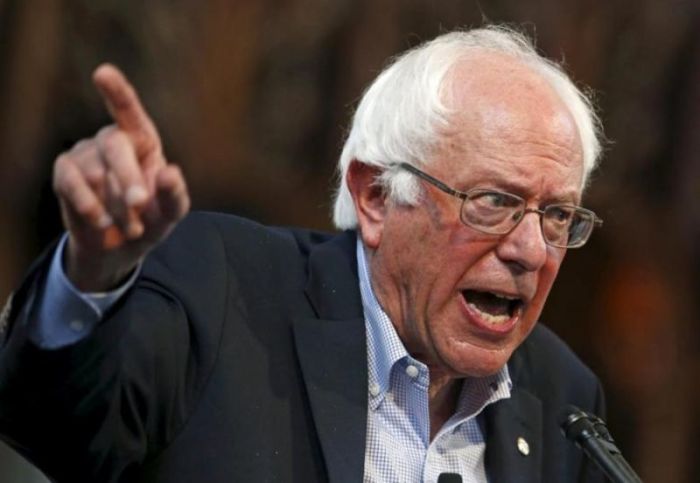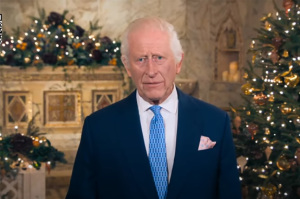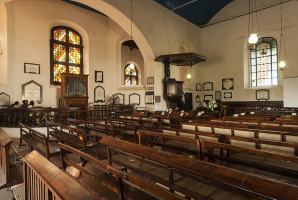'Rebels without a clause': 10 times Dem. senators questioned Trump nominees' religious beliefs
Peter Phipps
In May 2018, Peter Phipps, who has since been confirmed as a U.S. District Court judge in Pennslyvania, received questions about his membership with Knights of Columbus from Sen. Harris.
Harris asked Phipps if he had to swear an oath in order to join the Catholic organization and whether “litigants in [his] court [could] expect a fair hearing” when Knights of Columbus’ organizational values “conflict with litigants’ constitutional rights.”
Phipps was asked how [he would] “approach [the] constitutionally-protected right [of abortion] in [his] courtroom.”
Mike Pompeo
Secretary of State Mike Pompeo was confirmed by the Senate last April. The former congressman and former CIA director was asked multiple times by Booker during his confirmation hearing if he believes “gay sex is a perversion.”
Booker also asked Pompeo if having Muslims and other people who worship other gods in the United States is “something negative for our country.”
During that same hearing, Deleware Sen. Chris Coons stated: “I think it is important to have a sense on the record of your view of the religion of Islam and of our partnerships in the Muslim world.”
Amy Coney Barrett
Amy Barrett, a Seventh Circuit judge and Catholic believer, became the darling of Christian conservatives after she was accused by Sen. Dianne Feinstein of having “dogma” that “lives loudly” within her in a 2017 confirmation hearing.
According to FRC, Barret was questioned by Sen. Whitehouse about a petition she signed that expressed views on life, marriage and sexuality that is traditionally held by Catholics.
“Senators Feinstein, Whitehouse, and then-Senator Al Franken referred to Judge Barrett’s speaking engagements with ADF and relied on information about it from the SPLC,” the document explains. “Senators Whitehouse, Feinstein, Dick Durbin (D-Ill.), and Hirono questioned her about an article from law school about Catholic judges and recusal and what a Catholic judge would or would not recuse herself from.”
The FRC document notes that during Barrett’s confirmation hearing, Feinstein said:
“Whatever a religion is, it has its own dogma. The law is totally different. And I think in your case, . . . the conclusion one draws is that the dogma lives loudly within you. And that’s of concern when you come to big issues that large numbers of people have fought for for years in this country.’”
Trevor McFadden
Trevor McFadden, a federal judge who was confirmed in October 2017, was questioned by Sen. Whitehouse about the beliefs of his church, Falls Church Anglican, and comments made by an associate pastor of the church.
Falls Church Anglican considers “marriage to be a life-long union of husband and wife” intended for “the procreation and nurture of godly children” and entailing “God-given” roles of father and mother.
In 2015, the church’s associate pastor was quoted as saying that the Supreme Court’s decision to legalize same-sex marriage nationwide constitutes “an intrusion of the state on God’s institution of marriage ‘from the beginning.’”
“Based on those statements, Senator Whitehouse asked Judge McFadden whether he understood Supreme Court precedent in the court-created right to same-sex marriage, whether this contradicted statements made from the associate pastor, whether Judge McFadden thought ‘natural law’ should ‘receive greater weight than decisions that may be deemed inconsistent with natural law,’ and whether Judge McFadden would ‘faithfully apply all applicable, binding precedents, regardless of whether they are grounded in ‘natural law,’” McPhee wrote.
Russell Vought

Russell Vought, who serves as the deputy director of the White House Office of Management and Budget, faced questioning in June 2017 during his confirmation hearing from Independent Sen. Bernie Sanders — a self-proclaimed Democratic Socialist — and Maryland Sen. Chris Van Hollen.
Specifically, Vought was questioned about an article he wrote in his private capacity responding to the situation at his evangelical alma mater Wheaton College after a professor was disciplined for saying that Christians and Muslim worship the same God.
Vought’s article stated that Muslims "stand condemned" for not believing in Jesus Christ.
“Vought did so to argue that his alma mater, Wheaton College, appropriately ended its relationship with a professor for failing to adhere to the school’s Christian statement of faith,” FRC’s McPhee contends. “Senator Sanders asked Vought, ‘Do you believe that that statement is Islamophobic?’ and whether members of other religions were excluded from salvation.”
After Vought tried to explain his line of thinking about Christian theological beliefs, Sanders suggested that “this nominee is really not someone who is what this country is supposed to be about” and warned that he would vote against Vought.
As for Van Hollen, he argued the Vought’s statements suggest that he's “condemning people of all faiths.”
“I’m a Christian, but part of being a Christian, in my view, is recognizing that there are lots of ways that people can pursue their God,” Van Hollen said at the time. “No one is questioning your faith ... It’s your comments that suggest a violation of the public trust in what will be a very important position.”
Follow Samuel Smith on Twitter: @IamSamSmith
or Facebook: SamuelSmithCP





























